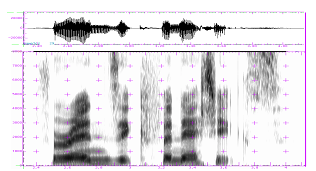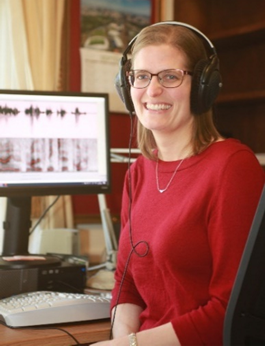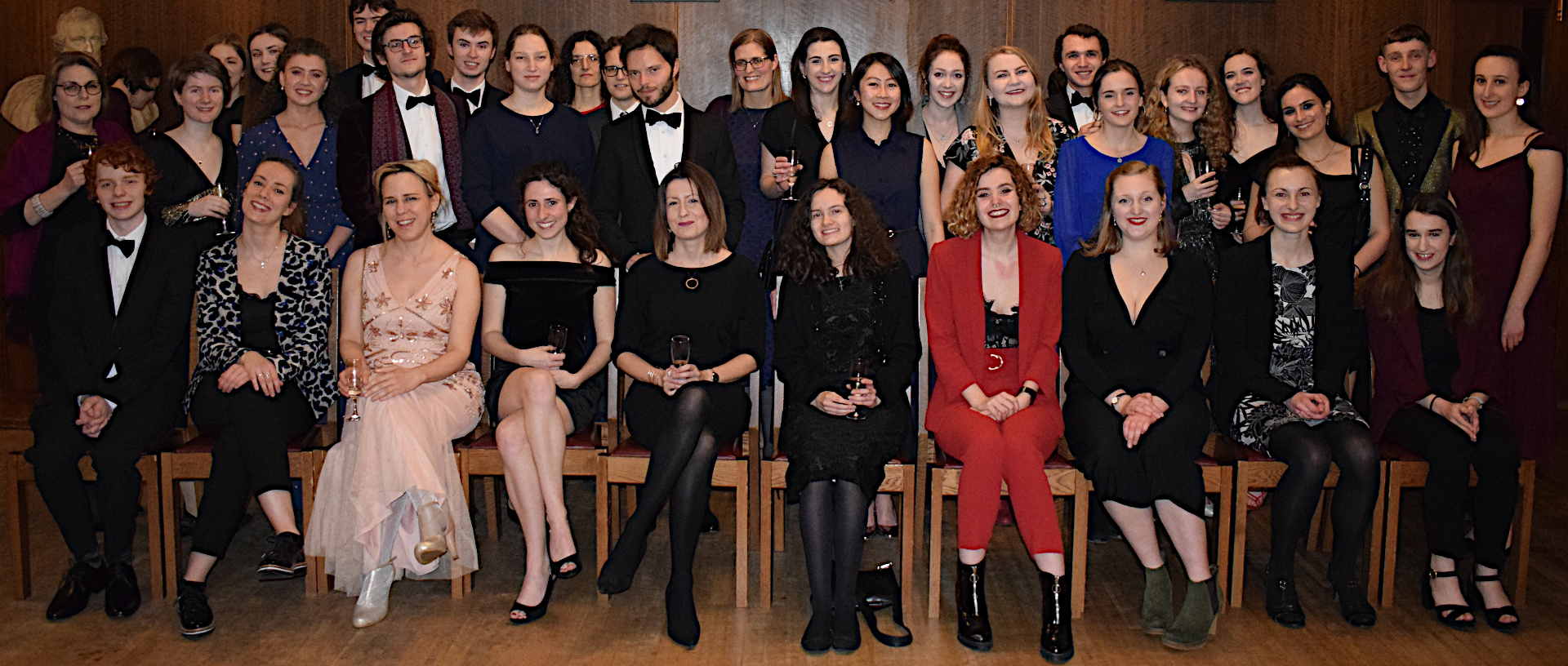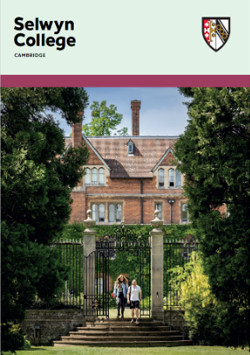Dr Kirsty McDougall, Selwyn's Director of Studies, answers a few questions...

saying ‘forensic phonetics’
What do you study in linguistics?
Linguistics is the systematic study of human language. How is it that one member of a language community can create a sound wave by moving their speech organs in a particular way and the other members can understand the message conveyed and respond? How can this sound wave contain the words of a linguistic message, and whether it is a question or statement, as well being packed with information about how the speaker is feeling, where the speaker is from, the speaker's social background and many other details? And how does the structure and order of the words convey the linguistic meaning? The languages of the world are fantastically diverse. A linguist's job is to describe this diversity and seek what languages have in common to attempt to explain how human communication works.

How did you get into Linguistics and what do you specialise in?
I studied linguistics and mathematics/statistics as an undergraduate. I loved linguistics, but wasn't sure what I wanted to do with it until we had a seminar from a visiting speaker who was a forensic phonetician in my final year. It was here I discovered forensic phonetics, the analysis of speech sounds for forensic cases involving speech (e.g. hoax call, ransom demand, telephone threat). I was excited to discover this "real world" application of linguistics and was inspired to complete a Masters and PhD in this area in Cambridge. As well as teaching phonetics, I now conduct forensic phonetic research and, from time to time, act as an expert witness for criminal cases.
How does the Linguistics Tripos work?
The Cambridge course offers students an overview of all the main areas of linguistics through four compulsory papers in the first year. You can then choose which areas you would like to explore in more detail in optional papers in the second and third years. In the third year, you also write a dissertation reporting your own detailed investigation of a topic for which you might even collect your own data, e.g. by recording speakers or by conducting surveys. Third year students also take a Linguistic Theory paper which considers some of the "big questions" in linguistics.
How is the Tripos taught?
The Linguistics Tripos is taught through lectures, small-group teaching ("supervisions") and practical classes which are organised centrally. Your work is overseen by the Director of Studies in Linguistics at your college who acts as your academic mentor throughout your degree.
Why is Selwyn a good place to study Linguistics?
Your choice of college is mainly about the place where you will live and the community around you, as the academic offering is much the same whichever college you are at. Selwyn is a terrific place to be a student as it is a very friendly college, with excellent facilities, supportive staff, and a lively student body. Selwyn is a great college at which to study Linguistics in particular as we have a strong community of linguistics students (relatively large at 2-3 per year group) within an enthusiastic larger community of modern languages and linguistics students and Fellows. And Selwyn is perfectly located right next to the Sidgwick Site!

and Fellows at a college dinner.
Photo: Joe Marsden
More information about the subject at Selwyn...
Selwyn has a long tradition of welcoming students doing Linguistics, whether in the Linguistics Tripos or as part of the Modern Languages Tripos. Selwyn is one of the few colleges to have an internal Director of Studies in Linguistics. The college has a record of success in the Linguistics course and provides strong support for students. The College Library has one of the finest collections of Linguistics books of any Cambridge college library. Selwyn is extremely close to the Linguistics Section and the library of the Modern and Medieval Languages and Linguistics Faculty. As in other small subjects, most teaching is organised at a departmental level.
The Teaching Fellows
Selwyn's fellow in Linguistics is Dr Kirsty McDougall, who has research interests in experimental and forensic phonetics.
Other Selwyn fellows with research interests in linguistics is Dr Rupert Thompson (Faculty of Classics), who teaches linguistics students choosing papers in classical linguistics, and Dr Elena Filimonova (Faculty of Modern & Medieval Languages), who specialises in Russian language and translation.
Qualities we are looking for
For most of our students, linguistics is a new subject that they have not studied formally before. Some may have developed an interest in language from doing English Language A Level, while for others the initial stimulus may have come from learning a foreign language or experiencing different dialects and languages in their everyday lives. Because of this diversity of backgrounds, we do not insist on any particular A Level subjects, but are looking instead for intellectual curiosity about language, a passion for the subject and an ability to think about language in a logical and precise manner. Successful candidates are likely to have shown evidence of intellectual independence, for instance, through independent reading in relevant areas. A Level subjects that could serve as a good preparation for this include English language, a foreign language, maths, psychology or a science.
Admissions assessment
Students who are invited to interview in Linguistics are also asked to take a written assessment. You do not need to register in advance for this written assessment as it will be organised automatically by the College if you are invited for interview.
Interviews
Candidates will have two interviews. The interviews aim to test your ability to think creatively and logically about language and its structure, and to establish your motivation for the subject and degree of engagement with it.
Within the interviews will be included some questions which will give a fuller sense of your aptitude for your chosen course, the maturity of your approach towards academic work, and your linguistic and other interests.
October 2025


